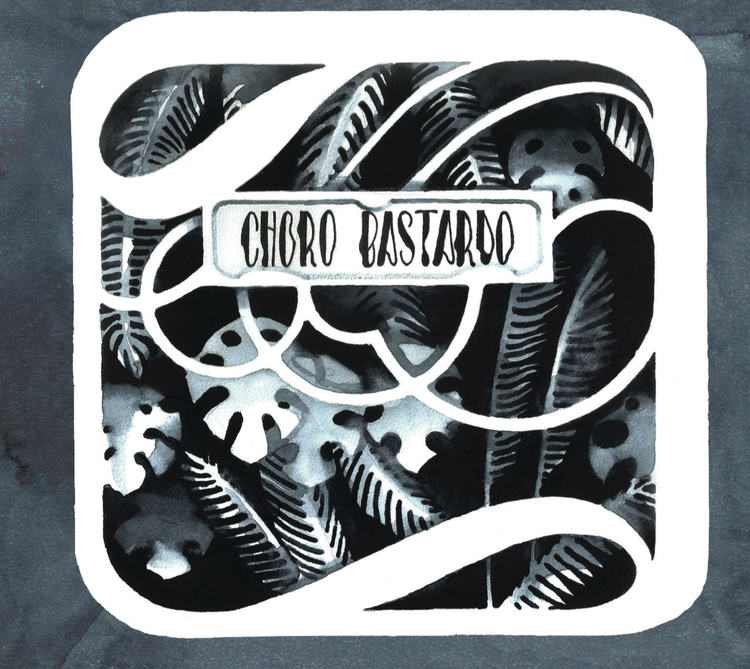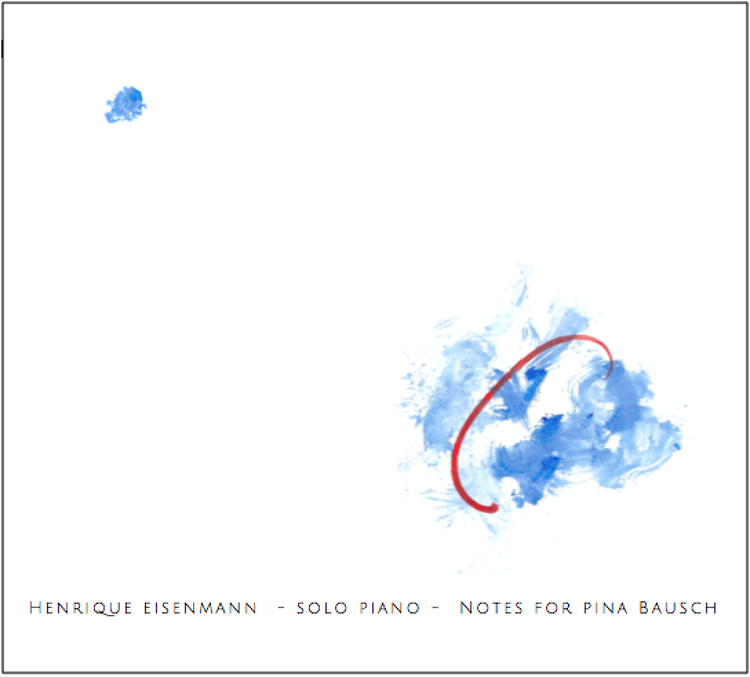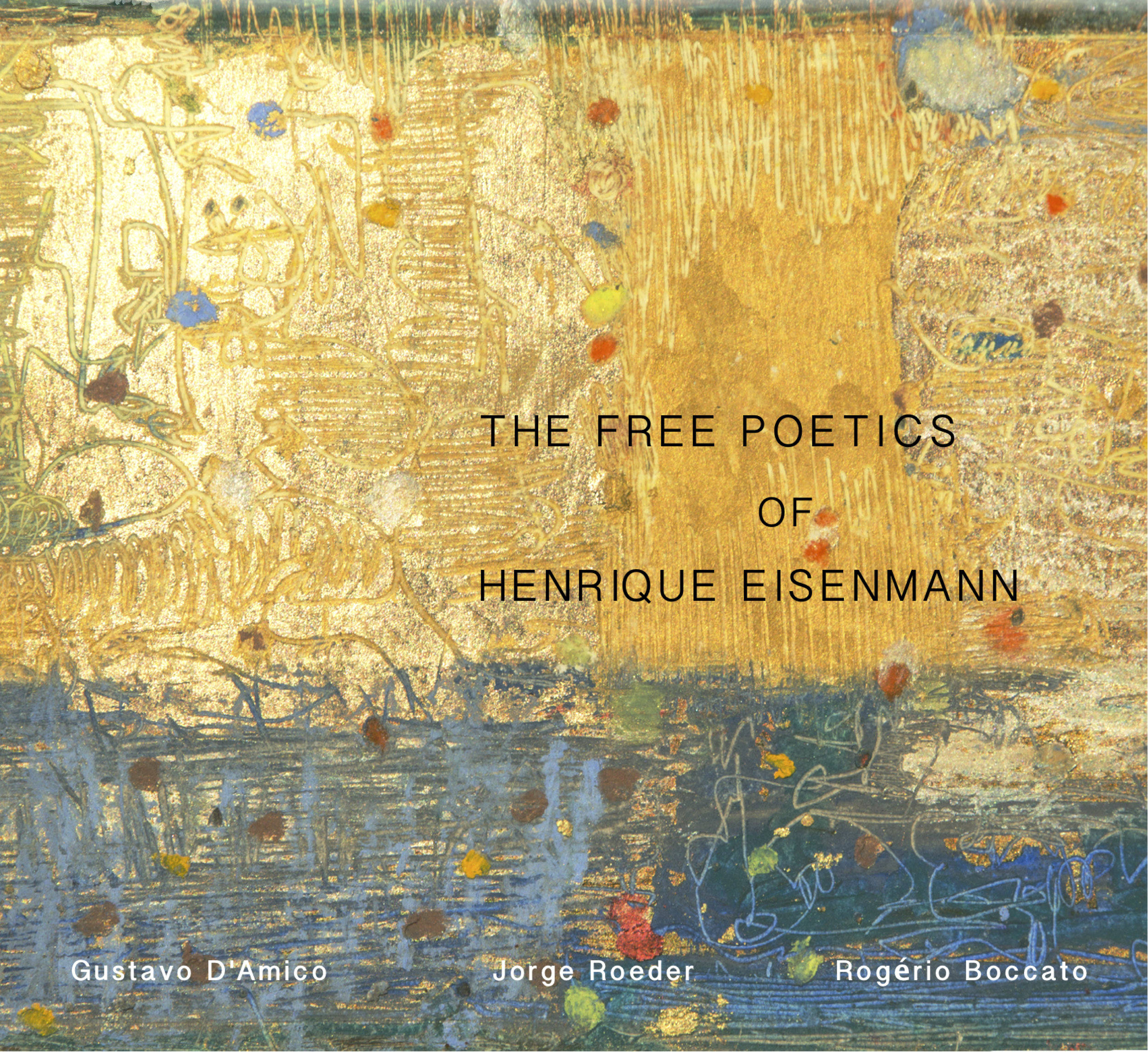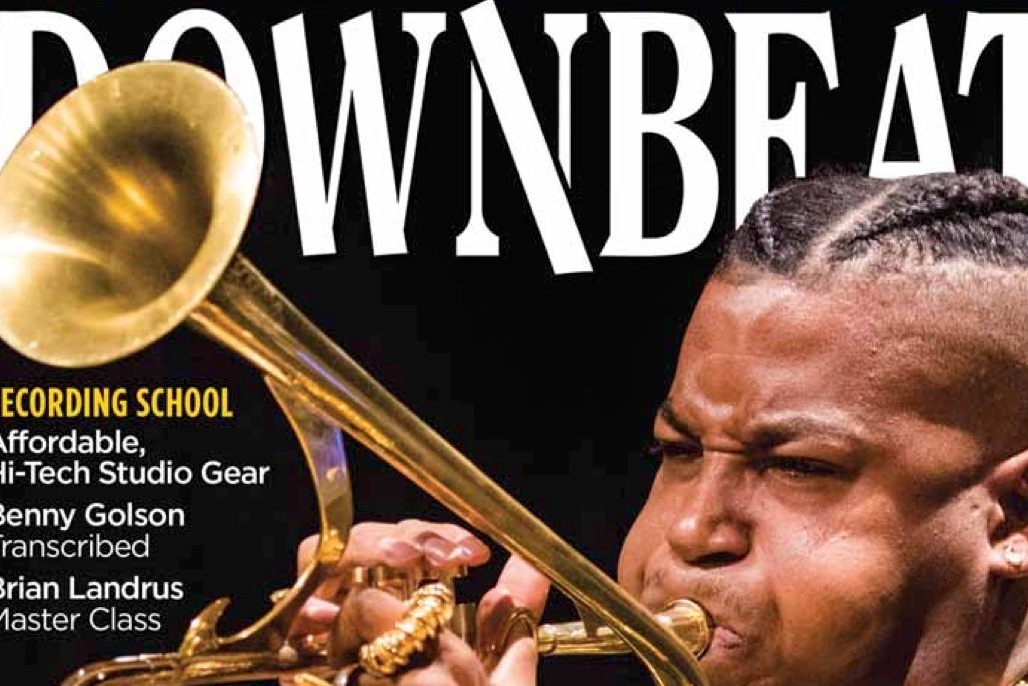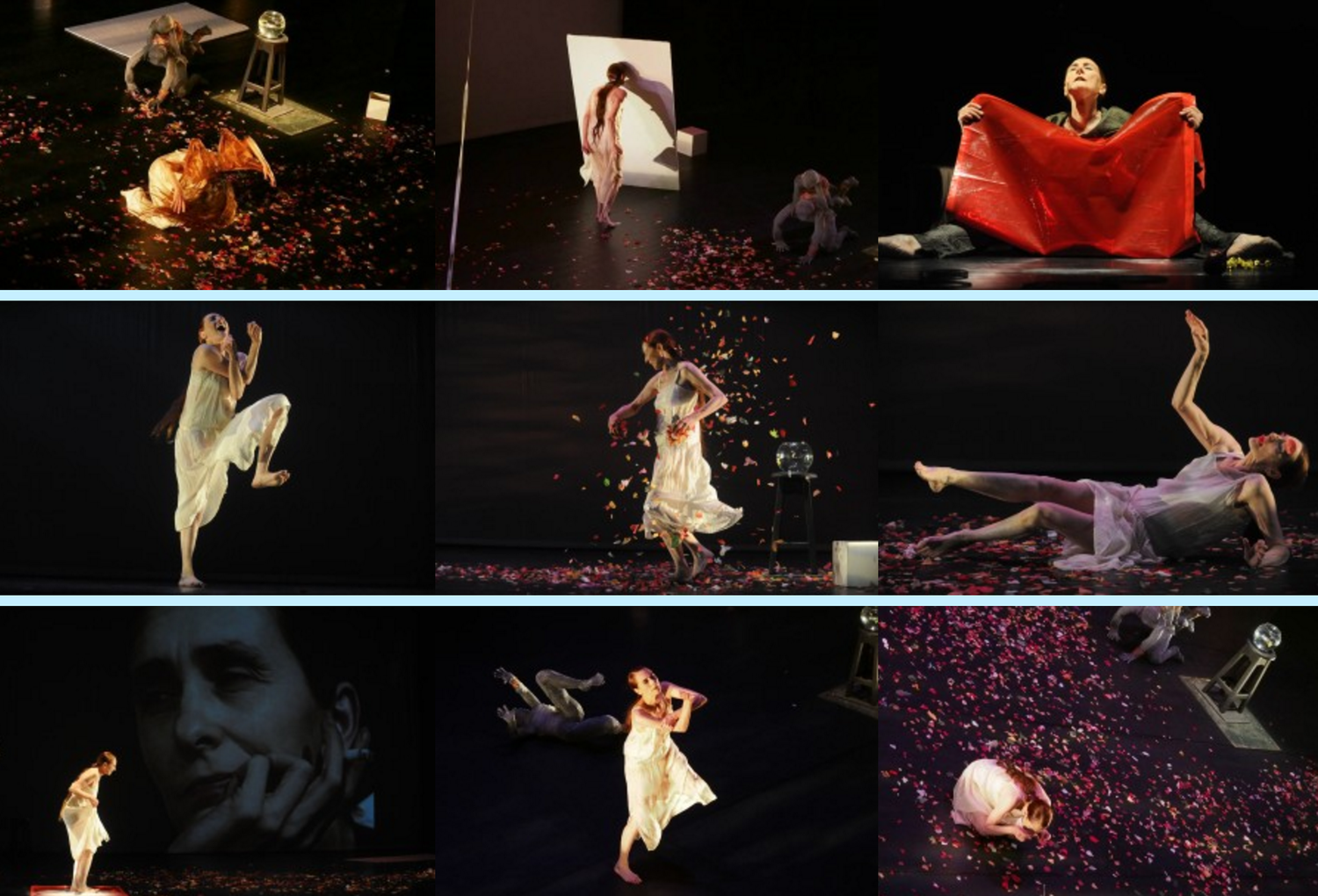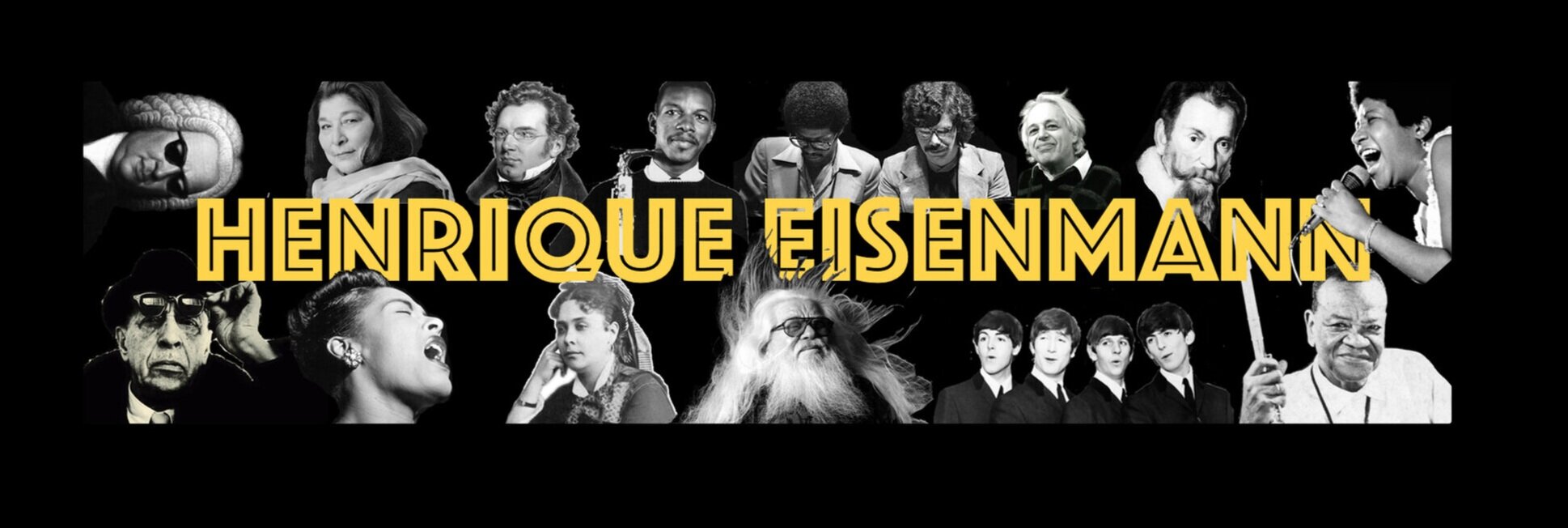
“Fascinating influences; obviously carrying the Brazilian gene, and interests in poetry, art and dance. What an incredible flare and technique!” (NPR)
“Brazilian Composer and pianist Henrique Eisenmann effortlessly braids ideas from disparate traditions and disciplines on this rigorously conceived quartet outing….” (DOWNBEAT MAGAZINE)
"But in literally everything he does he leaves the listener breathless, for scarcely has one thought through one Henrique Eisenmann idea, than another comes into being, unfolding musically more beautiful than the first."
(THE EPOCH TIMES)
listen & watch

2022 release
NAÇÃO
henrique eisenmann | Livia Nestrovski
Nação is an invitation to dive into an exuberant and contradictory Brazil, which places side by side the sacred and the profane, the rural and the urban, festive and introspective. The arrangements for voice and piano are a melting pot where free jazz, contemporary music and Brazilian popular music are fused, blending Carmen Miranda's humor with Hermeto Pascoal's avant-garde, Aldir Blanc's suburban poetry with Jacinto Silva's daredevil Coco tongue twisters, the countryside religiosity of Elomar and Milton Nascimento's deeply Catholic references to the amorous "India", a classic song of rural Brazil.
BIO
BIO
“To what degree can I challenge your perception of melody, of tonality, of pulse? Maybe the joy of art is exactly to focus on these less expected pathways, these new directions filled with surprise and excitement.”
New York-based Brazilian pianist Henrique Eisenmann is changing the paradigm of contemporary improvisation, creating an original musical universe that is powerfully inventive, authentic, drawing on the tradition of Classical music, Jazz and folk World Music.
Eisenmann is a current member of the Paul Winter Consort (recipient of 6-Grammy awards), and has performed with prestigious artists such as Steve Reich, Nexus ensemble, Gunther Schuller, The Brubeck Brothers, Luciana Souza, Tom Zé and many others. He has recorded dozens of records; the latest release "Nação" has drawn unanimous praise from critics across the world. Eisenmann is a former faculty at New England Conservatory and current faculty member at the Juilliard School in NYC, teaching creative Improvisation. He often tours the world in collaboration with different artists, poets, dancers, and musicians from all over the globe, having performed in renowned stages in Japan, China, Vietnam, Israel, Europe, Brazil, Peru, Panama, Cuba and others.
Eisenmann is the Artistic Director for Jazz Lab, a creative music program and festival held in Massachusetts; he is often a guest teaching artist at MIT, Brown University, Yale, Manhattan School of Music, UMass, and others, teaching lectures on creativity, improvisation and World Music.
Eisenmann is a strong enthusiast for cultural diversity. He is currently composing music for the multinational project Flyways, bringing together musicians from Zimbabwe, Tanzania, Malawi, Uganda, Ethiopia and Middle East in a celebration of cultural diversity.
PRESS

DOWNBEAT: The free poetics of Henrique eisenmann (ALBUM review)
“Brazilian Composer and pianist Henrique Eisenmann effortlessly braids ideas from disparate traditions and disciplines on this rigorously conceived quartet outing….” (READ MORE)
Poetry and Jazz: Bloom, Wilson, Eisenmann, and Hersch
“The Free Poetics of Henrique Eisenmann” (on Red Piano Records) is a reminder that jazz musicians come from all over the world and jazz settings of poetry are not limited to the English language" ... (READ MORE)
CNN - MUSICIANS PERFORM VIRTUAL CONCERTS FOR COVID-19 PATIENTS
Musicians play, for coronavirus patients, everything from Bach to the Beatles amid beeping ICU machines.
PROJECTS

PROJECTS & Publications
Collaborations, partnerships, Creative ideas
Rina Schenfeld, classmate of Pina (Juilliard '61), lifelong friends devoted to dance. "Notes for Pina Bausch" spectacle, music by Henrique Eisenmann. (Tel Aviv, Israel).
Notes to Pina Bausch (2014)
GEORGE BALANCHINE ONCE SAID: "DANCING IS MUSIC MADE VISIBLE". I WOULD ULTIMATELY DARE TO SAY THAT "MUSIC IS POETRY MADE INVISIBLE" EISENMANN
In this new groundbreaking record, Eisenmann teamed up with poet Hadassa Tal with the goal to create a new musical language for the piano able to translate words and movement into sounds. Initially Henrique worked over the recorded voice of Hadassa Tal reciting her poems in Hebrew, and then gave form, harmony and rhythm to the melodies. "As my homage to Pina Bausch, I decided to compose using the form of a Baroque suite, which is nothing more than a collection of different dances, but with a contemporary aesthetic approach." Later dancer Rina Shenfeld joined the group to bring her own choreography and her experience from the time she was in Pina's company.
Hermeto Pascoal and Free Improvisation as a global phenomenon
"The Free Poetics of Hermeto Pascoal: Mythology or Methodology" is Henrique Eisenmann's doctoral thesis, completed in 2017. It is a creative study on free improvisation, criticizing the Western world sense of ownership over the avant-garde, and advocating for the idea that free playing is an international phenomenon. Bringing together ideas from the fields of Anthropology, Biology, Psychology and Musicology, this paper is a great door into the world of composer Hermeto Pascoal and the ideas of free music outside of the US and Europe.
Watch lecture here: https://bmcc-cuny.zoom.us/rec/share/_pAvJor-rE5LWtbv8n7lXY0uH5jPT6a82iNN_vcKmBlrCM4JKan8prBH594Aez-1
A brief history of Brazilian music:
The mythology of João (english version)
Henrique Eisenmann, DMA.
July 11, 2019
Lately I have received several messages asking me to clarify some aspects about the musical revolution brought to bear by João Gilberto, composer, singer and guitarist from Juazeiro, Bahia, who left us this past Saturday.
Perhaps due to the romanticized mythological aura erected around his persona by the press, literature and the academia, João has become an untouchable monument hard to study, criticize and comprehend. There are those who blindly defend the legacy of João, placing him at the zenith of the pantheon of Brazilian artists (the Rolling Stones magazine has recently elected João as the second most important Brazilian musician of all times). On the other side, there are those who claim that João’s legacy was a disservice to the national identity; a process of “Americanizing” Brazilian music; a result of the “apartment experiments” from the middle/upper-class’ musicians in Rio, stimulated by imported American whisky. After some years of experience with academic research, I have learned that whenever such polarized views appear, there is rarely a correct side; truth normally lies in between. Thus, it is important to look at the situation in its complexity, filled with contradictions, mythologies, mistakes and singularities. We must admit, nevertheless, that João is a central figure in the history of Bossa Nova, and thus in the history of Brazilian Music. In 1965, we must not forget that in the midst of Beatlemania, the “best album” Grammy was handed to João, and not to John….
Alfaia
The Alfaia Quintet initially began as a collaboration between Syrian oud virtuoso Kenan Adnawi and Brazilian pianist Henrique Eisenmann. Eisenmann was drawn to Adnawi’s expressive performance of traditional Arabic music and together they began experimenting with a fusion between Adnawi’s compositions and Eisenmann’s roots in Brazilian jazz and experimental music. The duo quickly recruited the versatile double bass player Kirsten Lamb (USA) and woodwind multi-instrumentalist Gustavo D’Amico (Brazil) and Palestinian percussionist Tareq Rantisi. In 2015, the ensemble had the opportunity to work with John Zorn to prepare a program of his original music for performance at the Stone (NYC).












